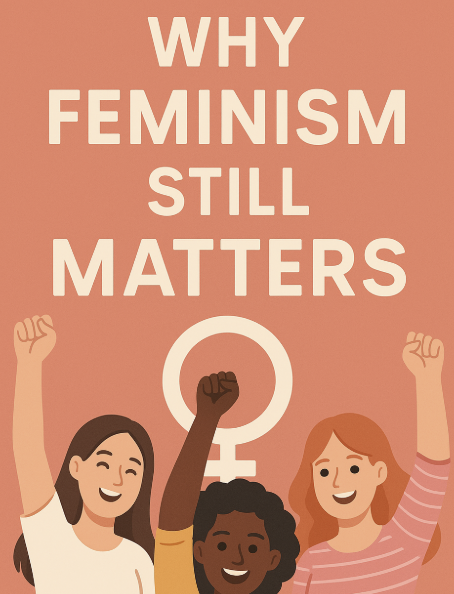Why Feminism Still Matters
Why Feminism Still Matters
Walk into any classroom today and ask whether men and women should have equal rights. Almost everyone will say yes. In theory, the battle seems won. Yet in practice, inequality quietly persists—in salaries, in expectations, in whose voices are heard and whose are doubted. Feminism is not an outdated slogan from history textbooks; it remains one of the most necessary social movements of our time.
For centuries, women were told what they could and couldn’t do—what jobs were “unfeminine,” how they should look, even how loudly they were allowed to speak. Many barriers have fallen, but invisible ones remain. Women still earn less on average than men for the same work. They are underrepresented in politics, science, and technology. Online, they face harassment simply for expressing opinions. And at home, unpaid care work—cooking, cleaning, raising children—still falls mostly on women’s shoulders.
What’s new is the form these inequalities take. They are subtle, often hidden behind the language of “choice” or “personal preference.” When a woman chooses a lower-paying job to balance family life, is it truly free choice—or the result of a system that makes it nearly impossible to do both? When girls are praised for being “polite” while boys are encouraged to be bold, how early do we start teaching them to shrink?
Feminism is not about women being superior to men. It’s about liberation from roles that limit both. Patriarchal systems hurt men too—pressuring them to be aggressive, unemotional, and constantly successful. A fairer world allows everyone to be human first, gender second.
Young people today have a unique chance to redefine what equality looks like. It starts with small, everyday acts: questioning sexist jokes, sharing domestic chores equally, making sure girls’ voices are heard in classrooms and clubs. Schools can teach histories that include women thinkers and leaders. Governments can design parental leave and workplace policies that treat caregiving as everyone’s responsibility, not just women’s.
But change also requires imagination. What would a truly gender-equal society feel like? Perhaps it’s one where leadership doesn’t have a gender, where safety in public spaces is taken for granted, where emotional expression is not weakness but honesty. Feminism is not a finished project; it’s an ongoing dialogue about dignity, respect, and choice.
“Feminism” may sound political, but at its heart it’s deeply human. It asks us to see half of humanity not as an exception to the rule, but as equal participants in shaping the future. Equality doesn’t arrive on its own—it’s built, day by day, through awareness, courage, and solidarity. That’s why feminism still matters, and why it always will.
Boyu Jin





